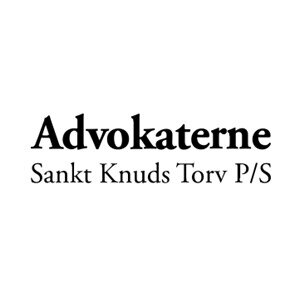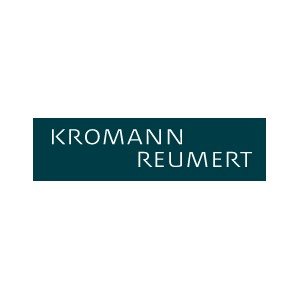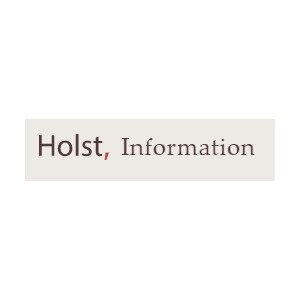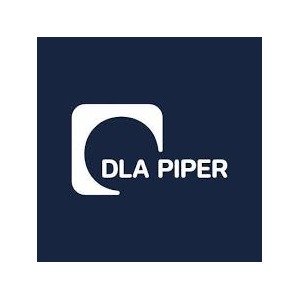Best Nonprofit & Charitable Organizations Lawyers in Aarhus C
Share your needs with us, get contacted by law firms.
Free. Takes 2 min.
List of the best lawyers in Aarhus C, Denmark
About Nonprofit & Charitable Organizations Law in Aarhus C, Denmark
Nonprofit and charitable organizations in Aarhus C, Denmark, operate under a well-regulated framework designed to ensure transparency and accountability. These organizations are essential players in Danish society, contributing to social causes ranging from education and healthcare to the arts and environmental protection. In Aarhus C, the second-largest city in Denmark, these organizations play a crucial role in the community by addressing local needs and providing services that might not be adequately covered by government initiatives.
Why You May Need a Lawyer
Engaging a lawyer specializing in nonprofit and charitable organization law may be necessary for several reasons:
- Formation and Registration: Legal assistance is often required to navigate the complex registration processes and to ensure compliance with the relevant legal requirements for establishing a nonprofit entity.
- Tax Exemption: Lawyers can provide guidance on obtaining and maintaining tax-exempt status, which is crucial for maximizing the resources available for charitable purposes.
- Governance Issues: Legal support may be needed to establish bylaws, resolve disputes within the organization, or address fiduciary responsibilities.
- Contractual Obligations: Drafting and reviewing contracts, such as employment agreements or service contracts with third parties, often require legal expertise to ensure terms are fair and legally sound.
- Compliance and Reporting: Ensuring ongoing compliance with regulatory requirements and handling reporting obligations is essential for maintaining good standing and credibility.
Local Laws Overview
Several key aspects of local laws impact nonprofit and charitable organizations in Aarhus C:
- Legal Structure: Nonprofits can be formed as associations, foundations, or trusts, each with distinct legal characteristics and requirements.
- Registration: Nonprofits must be registered with the Danish Business Authority and ensure all documentation complies with the relevant requirements.
- Annual Reporting: Organizations must submit annual accounts to ensure transparency, and in some cases, the accounts must be audited.
- Tax Regulations: Nonprofits may benefit from certain tax exemptions but must adhere to strict conditions and reporting practices.
- Employment Law: Like other Danish employers, nonprofits must comply with workers' rights regulations, including fair wages and working conditions.
Frequently Asked Questions
What is a nonprofit organization?
A nonprofit organization is an entity that operates for charitable purposes, rather than for the financial benefit of individual owners or shareholders. Any profits made are reinvested into the organization’s mission.
How do I start a nonprofit in Aarhus C?
To start a nonprofit, you need to choose the appropriate legal form, draft a founding document, and register with the Danish Business Authority. Consulting a lawyer can be beneficial to navigate this process.
Are nonprofit organizations taxed in Denmark?
Generally, nonprofit organizations can apply for tax-exempt status, provided they meet certain conditions set by Danish tax law. However, they must ensure compliance with relevant statutory requirements.
What governance structures are required for nonprofits in Denmark?
Nonprofits typically need a board of directors or trustees to oversee management and make strategic decisions. The structure and roles can vary based on the type of entity.
Can a nonprofit engage in commercial activities?
Yes, a nonprofit can conduct commercial activities, but the profits must be used to support its main charitable goals rather than distributed as dividends.
Do all nonprofits need to have their accounts audited in Denmark?
Not all nonprofits are required to have audited accounts. However, larger organizations or those with significant funding may be subject to auditing requirements to maintain transparency.
How can a nonprofit organization secure funding?
Nonprofits can seek funding through donations, grants, sponsorships, and government programs. Each funding source may have specific legal and reporting obligations.
What are the reporting requirements for nonprofits in Aarhus C?
Reporting requirements vary by the type and size of the nonprofit. Common requirements include annual financial reports and, for some, audited accounts submitted to the relevant authorities.
How do we handle employment within a nonprofit?
Nonprofits must comply with Danish employment laws, including contracts, fair employment practices, and workers' rights, similar to any other employer in Denmark.
Can I volunteer for a nonprofit without a contract?
Volunteering without a contract is possible, but it’s often advisable to have a volunteer agreement to clarify the roles, responsibilities, and expectations of both parties.
Additional Resources
If you need further information, the following resources can be helpful:
- Danish Business Authority: Provides guidance on business regulations and registrations.
- SKAT: The Danish tax authority offers information on tax compliance for nonprofits.
- Center for Non-Profit and Voluntary Organisation Studies (CEVOS): Offers research and support for nonprofit management and policies.
- The Association of Danish Foundations: A professional association offering resources for foundations operating in Denmark.
Next Steps
If you believe you require legal assistance for matters related to nonprofit and charitable organizations in Aarhus C, Denmark, consider the following steps:
- Identify the specific legal issues you face or areas where expert guidance can help.
- Research and contact law firms or legal advisors specializing in nonprofit and charitable organization law.
- Schedule consultations to discuss your needs and get advice on the appropriate course of action.
- Ensure continued compliance with local laws by staying informed and working with professionals as needed.
Lawzana helps you find the best lawyers and law firms in Aarhus C through a curated and pre-screened list of qualified legal professionals. Our platform offers rankings and detailed profiles of attorneys and law firms, allowing you to compare based on practice areas, including Nonprofit & Charitable Organizations, experience, and client feedback.
Each profile includes a description of the firm's areas of practice, client reviews, team members and partners, year of establishment, spoken languages, office locations, contact information, social media presence, and any published articles or resources. Most firms on our platform speak English and are experienced in both local and international legal matters.
Get a quote from top-rated law firms in Aarhus C, Denmark — quickly, securely, and without unnecessary hassle.
Disclaimer:
The information provided on this page is for general informational purposes only and does not constitute legal advice. While we strive to ensure the accuracy and relevance of the content, legal information may change over time, and interpretations of the law can vary. You should always consult with a qualified legal professional for advice specific to your situation.
We disclaim all liability for actions taken or not taken based on the content of this page. If you believe any information is incorrect or outdated, please contact us, and we will review and update it where appropriate.

















